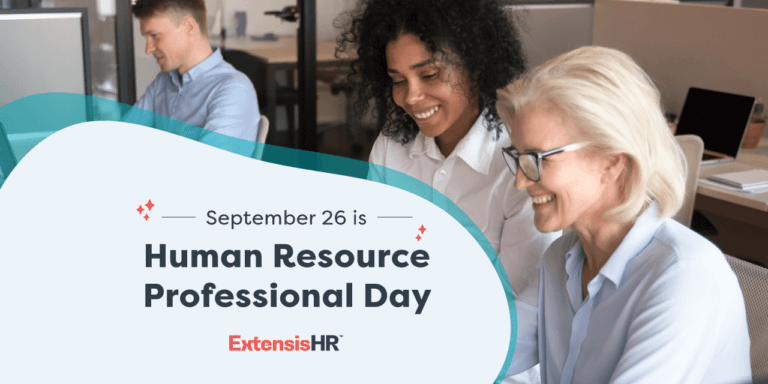Millennial Manager Burnout: Why It’s Happening and How to Help

Quick look: It’s official: millennials are the largest generation in the U.S. workforce, and 60% of them have direct reports. Unfortunately, out of all generations, millennials also saw the biggest increase in burnout in the last year. Here’s what small- and medium-sized business (SMB) employers need to know about this trend – and how they can combat it.
It’s an interesting time for working millennials – their generation is the largest in the U.S. workforce and because the oldest millennials were born in 1981 and have spent the last few decades working, it comes as no surprise that more than 60% of them have direct reports.
With that success comes stress, however. Unfortunately, 60% of managers report that their mental health has been hurt by the pandemic, and millennial managers saw the biggest increase in burnout last year. Here’s what burnout entails, why millennials are being hit the hardest, and what small- and medium-sized business (SMB) employers can do to destress (and retain) their millennial managers.
What is burnout?
Burnout has been making headlines on a regular basis – but what exactly is it?
While not an official medical diagnosis, the Mayo Clinic defines burnout as being a “special type of work-related stress – a state of physical or emotional exhaustion that also involves a sense of reduced accomplishment and loss of personality identity.
Symptoms include:
- Feeling cynical or critical at work
- Becoming irritable or impatient with coworkers, customers, or clients
- Lacking energy to be consistently productive
- Difficulty concentrating
- Lacking satisfaction from achievements
- Feeling disheartened about one’s job
- Using food, drugs, or alcohol to improve or avoid feelings
- Disrupted sleep habits
- Unexplained headaches, stomach problems, or other physical issues
Burnout is caused by many factors, including a heavy workload, unclear job expectations, lack of upward mobility, insufficient social support, and work-life imbalance. Left untreated, burnout can cause fatigue, insomnia, substance abuse disorders, heart disease, high blood pressure, and more.
The great millennial manager burnout
While the past couple of years have taken a toll on everyone, millennial managers in particular are feeling stretched thin.
A recent MetLife study found that millennial managers are significantly more likely to say they are burned out compared to managers of other generations. In fact, 42% reported workplace tiredness and stress, compared to just 27% of Gen X and 21% of Baby Boomers. Furthermore, according to the Society for Human Resource Management (SHRM), 18% of supervisors and managers experience symptoms of depression, and managers fall in the bottom 5% when it comes to job satisfaction.
Why are millennial managers so stressed? A large reason may simply be timing. Millennials began working around the 2008 recession when it was difficult to land a job and receive promotions. This may have caused some employees to become overly focused on work and success.
In the present day, the Great Resignation is causing many companies to struggle to attract and retain talent, creating additional stress for managers who may now have heavier workloads. On a more personal front, millennials are also a “sandwich generation,” meaning they are responsible for taking care of their own children as well as their aging parents, a potentially stressful and expensive situation.
Another reason for the burnout may be that millennials tend to focus so much on keeping their teams happy – at the expense of their own wellbeing. The aforementioned MetLife study found that employees with millennial managers feel more productive, successful, engaged, and motivated than those with managers of other generations. Ironically, while these managers are the most burnt out, they have the happiest teams.
SHRM also suggests that the dissatisfaction is in part because middle managers (many of whom are millennials, and busier than ever) are spending too much valuable time on administrative tasks – something that can be solved by partnering with a professional employer organization (PEO) that can provide a modern human resources (HR) platform with intuitive, time-saving self-service functions.
What can employers do?
The last several years have placed an unprecedented amount of stress on workers – but there are many things SMB employers can do to help. Let’s explore five ways to help millennial managers in particular destress.
1. Redistribute workloads
If someone has too many assignments on their plate, their workload needs to be reassessed. SMB leaders can consider hiring more people (even temporary workers can be a big help), reallocating work to other employees, or shifting non-essential deadlines.
The right HR platform – available through a PEO – can also lighten the load by enabling employees to quickly complete a variety of tasks, from payroll to performance reviews, from anywhere, at any time.
2. Revisit company culture
The labor market has changed tremendously in recent years, and it is an opportune time for SMBs to put their company culture under the microscope. According to LinkedIn, burnout is the number one reason employees quit their jobs, so taking the time to fine-tune company culture could be worth its weight in gold.
Some questions to determine if your company culture is affecting burnout are:
- Do your policies, processes, or incentives signal to employees that their productivity is more important than their personal wellbeing?
- How can you demonstrate that you value wellbeing?
- Are you causing unnecessary stress to workers?
- Do you encourage employees to take frequent breaks (i.e. leave their desk at lunch, take occasional walks, etc.)?
- Do you need to re-evaluate your paid time off (PTO) and time and attendance policies?
- Is there an opportunity to shift toward valuing the timely completion of high-quality work, instead of the total number of hours spent at a desk?
3. Bring the right benefits to the table
Employee benefits matter – especially to millennial managers. That same MetLife study reports millennial managers with employers that offer a range of benefits designed to meet their personal and household needs are more likely to report being holistically healthy (54% vs. 30%) and resilient (70% vs. 46%).
The pandemic has changed these needs – more millennial managers now state that certain benefits like financial planning tools, pet insurance, and legal services are “must-haves,” compared to pre-pandemic. SMB employers can stay ahead of the curve by regularly evaluating and refreshing their benefits packages to include things like access to mental health and mindfulness apps, virtual healthcare, pet insurance, student loan repayment plans, and an employee assistance program (EAP).
4. Focus on growth
Employees who feel stuck in a rut are more likely to burn out and consider quitting their jobs, making learning and development a top priority for SMB employers.
MetLife reports that millennial managers are more likely to want training in a number of areas including people management (82%), managing personal stress (78%), diversity, equity, and inclusion (DEI) and social justice (74%), and hybrid team management (74%). By partnering with a PEO that can provide access to an industry-leading learning and development platform, SMB employers can give their millennial employees a sense of development and upward mobility.
5. Care about caregivers
Workplace stress is only half the battle that millennial workers are facing.
From 2015 to 2020, the number of U.S. caregivers jumped from 43.5 to 53 million – and 61% of those people also work paid jobs. Unfortunately, of those working caregivers, 32% admitted to quitting jobs that didn’t support their needs. To combat this, employers can:
- Understand caregivers’ desires by regularly surveying employees and evaluating company demographics to be sure they’re offering the most useful benefits
- Encourage the discussion of caregiving needs and use internal communications to drive awareness of benefits available to caregivers
- Be flexible – consider implementing a hybrid or remote schedule, compressed work weeks, or flexible hours, if possible
Relax: help is here
Millennials make up the largest portion of the workforce – and the working world must adjust to better meet their needs. Luckily, you’re not alone in this task. The right PEO – like ExtensisHR – can help you every step of the way by:
- Evaluating and providing guidance on company policies
- Offering expert benefits consultations and management, with diverse employee benefit options
- Recruiting talent to help lighten your current employees’ workloads
- Helping you plan and roll out mentorship and learning and development programs
- Providing access to a mobile-first HR platform designed for the work anywhere world
With a team of dedicated HR experts ready to discuss your needs, help is just a call, chat, or click away.
Ready to make your millennial managers’ lives easier? Contact the experts at ExtensisHR today to get started.



